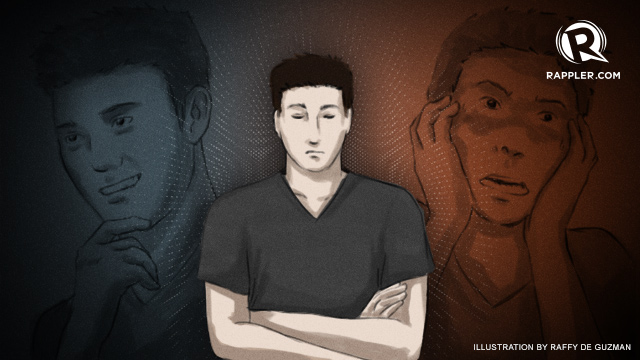SUMMARY
This is AI generated summarization, which may have errors. For context, always refer to the full article.
 “Feelings” are usually favored in literature and in common parlance, over “thinking.” Emotions are referred to as the workings of the “heart” or the “higher” self or master. But in reality, emotions are the workings of our primitive brain parts. It is the younger part of the brain – the thinking part – that checks anger, disgust, temper, hunger (for anything). Empathy, forgiveness, understanding are results of strong connections of emotions to the thinking part of your brain. And everyday, especially under unusual stress, you have some sort of duel happens between these two masters in your brain. Who wins?
“Feelings” are usually favored in literature and in common parlance, over “thinking.” Emotions are referred to as the workings of the “heart” or the “higher” self or master. But in reality, emotions are the workings of our primitive brain parts. It is the younger part of the brain – the thinking part – that checks anger, disgust, temper, hunger (for anything). Empathy, forgiveness, understanding are results of strong connections of emotions to the thinking part of your brain. And everyday, especially under unusual stress, you have some sort of duel happens between these two masters in your brain. Who wins?
In an article entitled This is your brain on meltdown in the April 2012 issue of Scientific American, scientists revealed these “masters” for us. These were Amy Arnsten, neurobiology professor at the Yale School of Medicine; Carolyn M. Mazure, a professor of psychiatry and psychology and Associate Dean for Faculty Affairs at the Yale School of Medicine; and Rajita Sinha, psychiatry professor at the Yale School of Medicine and the director of the Yale Stress Center. They wanted to figure out what really happens to us when under unusual stress which could include exams, a performance, episodes of illness, our own or of someone dear to us, or perhaps even financial. To some people it could be common stresses they are extra sensitive to.
For example, when you have just realized you have a lot of debt to pay and would have to figure out ways to pay for them quick, you become “two-headed.” One head is the one that governs your panic stance making you start blaming everyone else for it. The other head, the cool one, head will plot things out clearly so you would have a plan of action to move forward and out of the rut you are in. These two heads or masters are always present in your brain but depending on the circumstances, one can defeat the other. How you come up in the end is the result of the constant duel between these two masters.
According to the said research, the cool master mainly resides in our prefrontal cortex, the thinking part of the brain, and from here, things are kept in check. The prefrontal cortex is that part of the brain that is highly developed in humans. Located behind your forehead, it is responsible for planning, decision-making and insight. With that master in command, certain things are kept in balance. By “things,” they refer to the brain parts that are responsible for the cementing of habit (striatum), the more primitive brain part (hypothalamus) that we have in common with other animals responsible for instincts such as aggression, hunger and sex and the part for emotions like fear or anger (amygdala). These are the older parts of the brain.

The younger “cool” brain (prefrontal cortex) sprinkles brain chemicals called “neurotransmitters” like dopamine and norepinephrine over these brain parts, strengthening connections of the emotional brain with the thinking brain. This enables you to make sense of what is happening without being overwhelmed by your emotions. The cool master allows you to figure out ways to cope way beyond “knee jerk” reactions.
Under stress, the master led by the emotional powerhouse in your brain which is the amygdala, also floods the brain with those same brain chemicals, clogging our connections with the cool master. Without connections to the thinking part of our brains, impulse and emotions reign unchecked. As a result, we panic and are paralyzed by our own emotions.
It is deeply worrying that constant exposure to stress strengthens the emotional master while weakening the reign of reason in our heads. That was one of their research findings. This means that we are rendered increasingly vulnerable to emotional paralysis if we experience unrelenting episodes of stress.
So what makes each of us different in the way we deal with the stressful episodes of our lives? The scientists said that part of it is in our genes. Some people are just born with brains that favor the rule of the cool master more. But our lives are not authored by genes alone. The whole point of understanding this two-master scenario in science in this research is to find ways of helping ourselves keep our cool and thinking clearly knowing that we are constantly two-headed.
May our cool masters reign.
Maria Isabel Garcia is a science writer. She has written two books, “Science Solitaire” and “Twenty One Grams of Spirit and Seven Ounces of Desire”. Her column appears every Friday and you can reach her at sciencesolitaire@gmail.com.
Add a comment
How does this make you feel?
There are no comments yet. Add your comment to start the conversation.